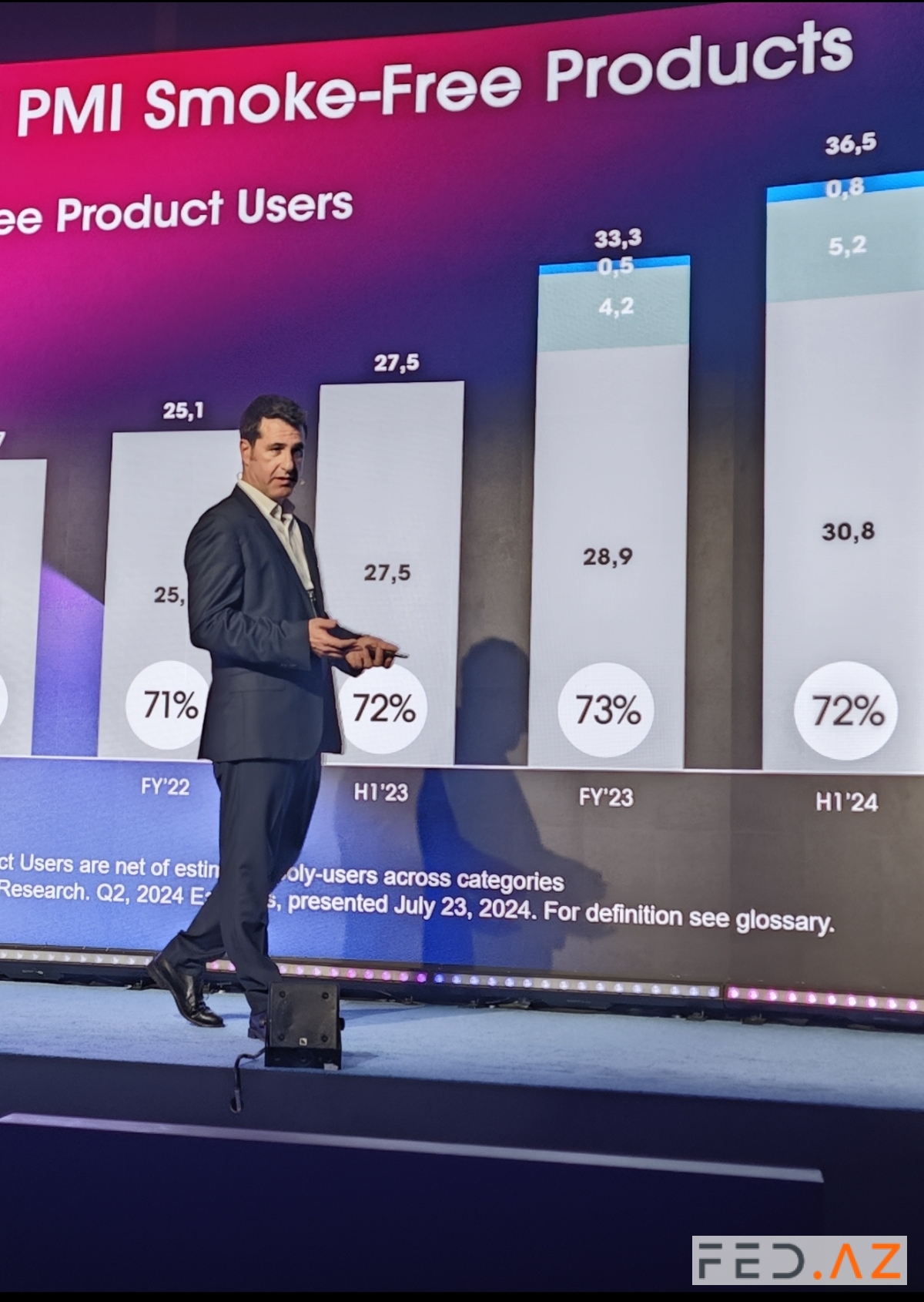A Technovation conference was held in Abu Dhabi, the capital of the United Arab Emirates (UAE), on the topic of innovations and new technologies for a smoke-free future.
According to FED.az, at the conference arranged by Philip Morris International (PMI), PMI's Chief Executive Officer, Jacek Olczak, shared information on the Company’s efforts undertaken so far in awareness-raising and other areas, as well as current and further plans. He stated that PMI’s global mission is to offer alternatives to those who do not wish to quit nicotine: “If you do not smoke, do not start; if you do smoke, quit; if you don’t want to quit, switch to less harmful alternatives.”
According to Olczak, approximately 1 billion people around the world smoke. However, despite active awareness-raising efforts by countries, there has been no significant decline in the number of smokers. Sometimes, countries implement regulatory and prohibitive measures in this regard, but the result remains the same. Experts do not predict a sharp decline in the number of cigarette smokers in the future. Consequently, this demonstrates the inefficiency of awareness-raising and other efforts.
J.Olczak stated that scientific and innovative approaches would be more effective than the measures taken so far in addressing the cigarette smoking problem. Let us reduce deaths caused by smoking tenfold. Emphasizing the importance of public awareness about the benefits of smoke-free products, Olczak cited successful strategies implemented in Sweden as an example: “Previously, 49% of Swedish men smoked regularly. Currently, smokers use less risky alternative smoke-free options such as electronic cigarettes, heated tobacco products, and oral nicotine products. Thanks to better regulation of alternative tobacco products, only 5.3% of people in Sweden smoke today.”
During the conference, the CEO also discussed large-scale investments in the development of smoke-free products, stating that over the past 10 years, PMI’s total investments in technology development, scientific research, and production have exceeded $12 billion, with this figure continuing to grow.
In his extensive speech on the topic, Technology and Innovation: Driving Force Behind Global Solutions, PMI's Vice President for International Communications and Engagement, Tommaso Di Giovanni, stated: “Inevitable innovations could solve some of the world’s most pressing problems over the next 10–20 years. This list of problems includes the tobacco sector, which could help reduce the number of 1.1 billion smokers globally.”
Tommaso Di Giovanni stated that a country’s openness to innovation and public awareness of the benefits of smoke-free products are of great importance. When the public is properly informed, they make the right choices. In this regard, harm reduction begins with humanity’s desire for positive changes, which can only be achieved through science-based technological innovations. In PMI, we started our journey under the smoke-free tobacco banner in Milan and Nagoya in 2014. Through awareness campaigns and other initiatives, PMI took on a leading mission in 2016.
Next, PMI’s President for Smoke-Free Inhaled Products, Stefano Volpetti, made an extensive presentation on the Company’s achievements, customer portfolio, including customer segments, and product range. He stated that the estimated total number of PMI’s global smoke-free product users is currently 36.5 million. Herewith, net revenues from smoke-free tobacco products accounted for 38% of PMI’s total income, representing over 50% of the market share. The number of markets to launch smoke-free products is now 92.
During panel discussions at the event, speakers extensively addressed topics such as the realities of regulations for smoke-free products, the advantages and scientific evidence behind such products, proper public information, consumer-beneficial policies, PMI’s broad portfolio of categories, and providing consumers with options. Discussions emphasized the need for science-based policies and leveraging the full potential of innovations in combating smoking collectively.
Speakers highlighted that an increasing number of forward-thinking governments recognize that scientifically supported, less harmful alternatives to smoking can play a role in accelerating the reduction of smoking cigarettes. These efforts give positive results, benefiting public health and socioeconomic conditions.





























